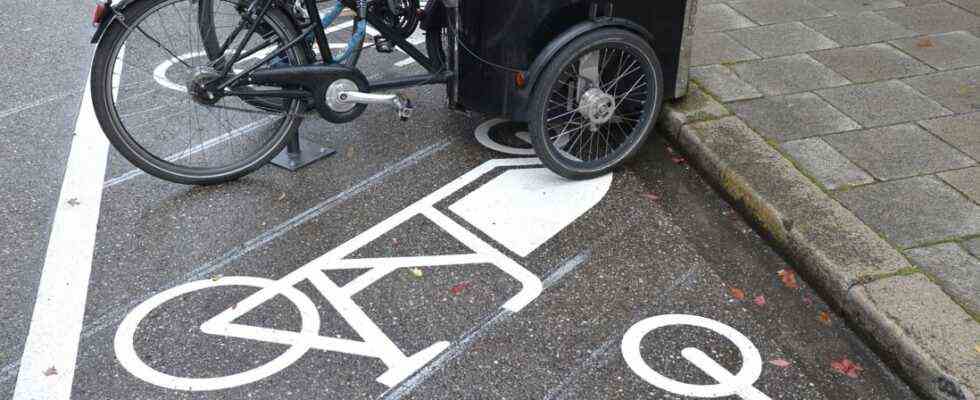“A real alternative to the car”: With these words, Federal Transport Minister Andreas Scheuer (CSU) in 2019 praised the then newly developed e-scooters. The devices are a great way of bridging the “last mile” from the train or bus stop – this makes having your own car in the garage superfluous and is an important contribution to the turnaround in traffic.
The reality is known to be different, the scooters are perceived more as a nuisance than a relief in most municipalities, because they are usually parked all over the place on the sidewalks. And so, almost two years later, there are still discussions in major German cities about real alternatives to the car. At the moment, it seems, a solution is gaining ground that the Greens in particular have brought into the debate at the federal level: cargo bikes. With a transport box in front of the handlebars and in the vast majority of cases an electric drive aid, they should make shopping and other everyday logistical challenges possible without the need for a car.
However, because the vehicles require significantly more space than conventional bicycles, the city council commissioned the planning department at the time for a pilot project in January 2019. Parking spaces should be created especially for cargo bikes in order to test whether and how these are accepted by the population. Almost three years after the start of the project, more than 40 of these specially marked areas have now been designated – in some cases, car parking spaces have had to give way. Where a car used to be parked, there is now space for two cargo bikes, according to the calculations of the mobility department, which is now responsible for this.
The department together with the responsible district committees decides which areas are suitable as parking spaces for cargo bikes. By the end of 2020, 14 parking spaces had already been created at five different locations. The parking spaces at the Messestadt Ost underground station as well as at the Hohenschwangauplatz, Gietlstraße, Blumenstraße and Rosenstraße are among the first of their kind in Munich. The number of parking spaces has now roughly tripled. A focus on certain parts of the city such as Schwabing or Haidhausen, in which one suspects significantly more clientele cycling, is apparently not put: According to the city, the 15 locations, each with several parking spaces, are distributed among the areas of responsibility of nine district committees.
The mobility department cannot yet say how well the cargo bike parking spaces have been accepted so far. “The surveys as the basis for the evaluation of the pilot project are currently underway,” says SZ when asked. It is said that only after the results have been determined and communicated to the city council will it decide how the project will be continued.
If you ask around at the parties in the town hall, you naturally get very different feedback. Like the current coalition partner, the SPD, the Greens are very satisfied with the course of the pilot project and would like to continue on the course that has been taken. “Overall, we need more bicycle parking space,” says Green City Councilor Gudrun Lux. “And because cargo bikes are now being used much more, it is clear that sufficient parking spaces are needed.” The areas installed so far have also been well received so far. “The need is definitely there.” For the future, Lux would like to go one step further: It is thinking about lockable parking spaces on which the not exactly cheap cargo bikes can be parked for a longer period of time. Because not everyone has the option of storing them in their courtyard or private bicycle storage room.
The Social Democrats are also impressed by the results so far. “This is a successful model that absolutely has to be continued,” says City Councilor Andreas Schuster. Cargo bikes are a real alternative to cars in the city. And according to Schuster’s observations, the parking spaces installed to date are also being used by the Munich-based company. “That is very well received.” However, one should not overdo it with the conversion of car parking spaces into parking spaces for cargo bikes in order not to provoke a conflict between cyclists and motorists. “You have to do it with moderation.”
At the CSU, on the other hand, one accepts the enthusiasm of the governing parties with skepticism. “We do not want any ideological redistribution in favor of just one mode of transport, the bike,” says Manuel Pretzl, transport policy spokesman for the CSU parliamentary group in the town hall. Rather, you have to rely on taking all road users with you on the way to the mobility transition and not playing the different groups off against each other. “It’s about togetherness in mobility, not against each other.”

